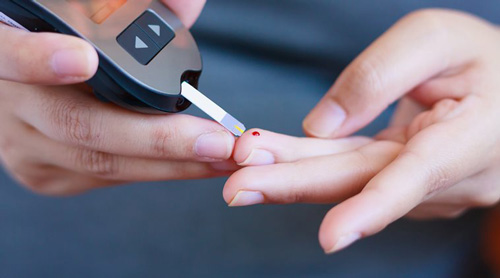A recent study finds that eating a late dinner can cause weight gain and high blood sugar levels regardless of calories.
Eating dinner at 10 p.m. instead of 6 p.m. may affect your blood glucose and the ability to burn fat.
The study found that late eaters had peak blood sugar levels almost 20 percent higher and fat burning reduced by 10 percent, compared with those who ate dinner earlier.
Conventional wisdom is that a calorie is a calorie, no matter when you eat it, and that weight gain is caused by eating more calories than you use. Nutritionists call this the calories in, calories out theory of weight control. But it might not be as simple as that. New research discovers that what time you eat may play a significant role in gaining weight.
Eating late associated with weight gain. According to a study published today in the Endocrine Society’s Journal of Clinical Endocrinology & Metabolism, eating a late dinner is associated with weight gain and high blood sugar levels, regardless if the meal is the same that you would have eaten earlier. “We were aware of other research that suggested that late eating is associated with obesity, and because association is not the same as causation, we wanted to look at this in a more rigorous way,” study author Dr. Jonathan C. Jun, associate professor of medicine at Johns Hopkins University. Jun explained that the research team wanted to understand whether late eating actually changes metabolism in a way that promotes obesity. “So that’s why we set out to do this randomized clinically controlled trial, taking healthy people and make them eat at two different times, control their food, control their diet, and control their sleep times as well,” he said. Same meals, same sleep time
Jun and team studied 20 healthy volunteers (10 men and 10 women) to find out how their bodies metabolized dinner eaten at 10 p.m. instead of 6 p.m. All study participants went to sleep at the same time: 11 p.m.
Study findings show that blood sugar levels are higher, and the amount of fat burned lower, when eating a late dinner, even when people ate the same meal.
“We weren’t surprised. Other researchers have done similar work looking at circadian rhythms and diet, and other labs have shown that if you eat out of phase with your body’s normal circadian rhythm, you don’t metabolize glucose the same way,” Jun said.
The study found that late eaters had peak blood sugar levels almost 20 percent higher and fat burning reduced by 10 percent, compared with those who ate dinner earlier.
“The effects we have seen in healthy volunteers might be more pronounced in people with obesity or diabetes, who already have a compromised metabolism,” said the study’s first author Chenjuan Gu, PhD, a postdoctoral researcher at Johns Hopkins University, in a statement.










